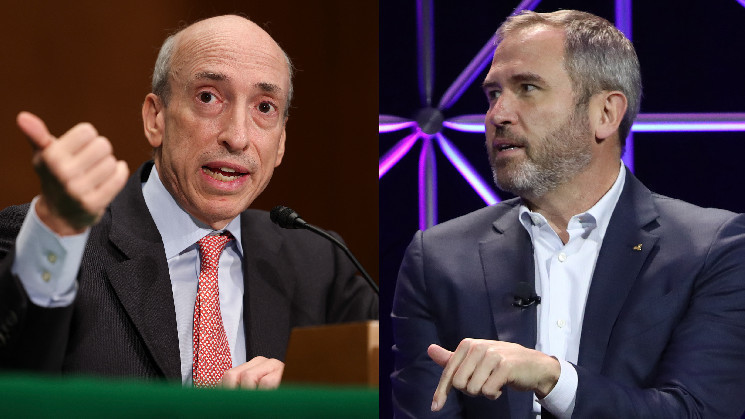Ripple Labs will file a cross-appeal in its ongoing case against the U.S. Securities and Exchange Commission, the company announced Thursday, as part of an effort to maintain its legal defenses as the SEC's own appeal in the case winds its way through an appeals court.
The SEC filed a notice of appeal earlier this month in its long-running case against Ripple, which the regulator first sued in December 2020. Ripple's cross-appeal is intended to ensure that the company preserves its points and arguments in the case, Chief Legal Officer Stuart Alderoty told CoinDesk, though he did not go into detail on what the company may argue in its motion.
"We're really doing that to make sure that we leave nothing on the table, including the argument that there cannot be an investment contract without there being the essential rights and obligations found in a contract," he said.
District Judge Analisa Torres ruled in July 2023 that Ripple's programmatic sales of XRP to exchanges, which in turn sold the token to retail customers, did not violate federal securities laws. Under her ruling, XRP is not deemed to be a security.
Like the SEC's filing last week, Ripple's initial filing is just a notice that it will submit a more comprehensive argument in the future. Alderoty said the two parties would have to fill out a form in the coming weeks laying out "a fairly high level description" of their arguments, but neither the regulator nor the company would get into the specifics until their opening briefs are filed.
The SEC's brief may come near the end of January, while Ripple's opening brief – which would be combined with its opposition to the SEC's brief – would come sometime after that, he said.
"I don't think that folks who are paying attention should be much distracted by these efforts to create confusion, because I think the judge got it right, and I think they should welcome the opportunity for the court of appeals to roll on this issue and finally, bring the clarity that we need," Alderoty said about the appeals court taking up the case – though, he added, the U.S. "really needs a policy solution" from legislators rather than court rulings.
"Short of that, and while we don't have one, it's going to be up to the courts, and we're willing to continue to fight that fight and collect victories and bring clarity to the industry through the litigation process," he said.
 coindesk.com
coindesk.com
